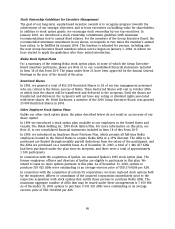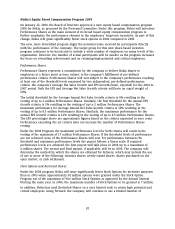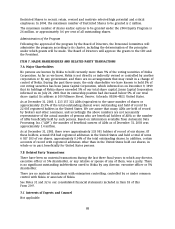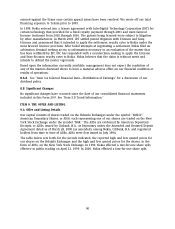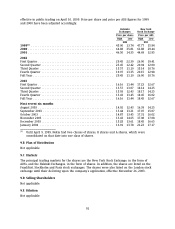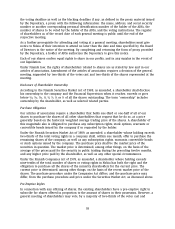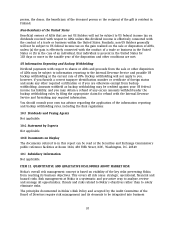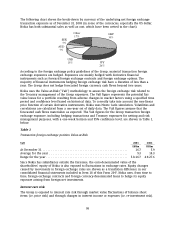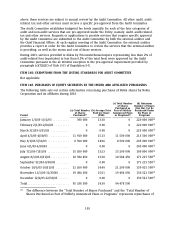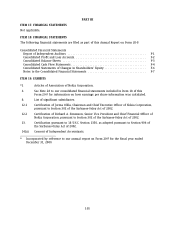Nokia 2003 Annual Report Download - page 97
Download and view the complete annual report
Please find page 97 of the 2003 Nokia annual report below. You can navigate through the pages in the report by either clicking on the pages listed below, or by using the keyword search tool below to find specific information within the annual report.Recent United States Tax Law Changes Applicable to Individuals
Under 2003 US tax legislation, some US Holders (including individuals) are eligible for reduced
rates of US federal income tax (currently a maximum of 15%) in respect of ‘‘qualified dividend
income’’ received in taxable years beginning after December 31, 2002 and beginning before
January 1, 2009. For this purpose, qualified dividend income generally includes dividends paid by
non-US corporations if, among other things, (i) the shares with respect to which the dividend has
been paid are readily tradable on an established securities market in the United States, or (ii) the
non-US corporation is eligible for the benefits of a comprehensive US income tax treaty (such as
the US-Finland income tax treaty) which provides for the exchange of information. We currently
believe that dividends paid with respect to our shares and ADSs will constitute qualified dividend
income for US federal income tax purposes, however, this is a factual matter and is subject to
change. Furthermore, some of the eligibility requirements for non-US corporations are not entirely
clear and further guidance from the Internal Revenue Service is anticipated. In addition, the
Internal Revenue Service is expected to issue certification procedures for 2004 whereby a non-US
corporation will have to certify as to the eligibility of its dividends for the reduced US federal
income tax rates.
Tax on Sale or Exchange
A US Holder generally will recognize taxable gain or loss on the sale or exchange of ADSs in an
amount equal to the difference between the US dollar value of the amount realized and the
adjusted tax basis (determined in US dollars) in the ADSs. If the ADSs are held as a capital asset,
this gain or loss generally will be long-term capital gain or loss if, at the time of the sale or
exchange, the ADSs have been held for more than one year. Any capital gain or loss, for foreign
tax credit purposes, generally will constitute US source gain or loss. In the case of a US Holder that
is an individual, any capital gain generally will be subject to US federal income tax at preferential
rates if specified minimum holding periods are met. The deductibility of capital losses is subject to
significant limitations.
The sale by a US Holder of the ADSs or the underlying shares, other than an individual that, by
reason of his residence in Finland for a period exceeding six months, is or becomes liable for
Finnish income tax according to the relevant provisions of Finnish tax law, generally will not be
subject to income tax in Finland, in accordance with Finnish tax law and the Treaty.
Finnish Capital Taxes
Under the Treaty, the holding of ADSs or the underlying shares by US Holders generally will not
subject a US Holder to Finnish tax on net capital.
Finnish Transfer Tax
Transfers of shares will be, and transfers of ADSs may be, subject to the Finnish transfer tax only
when one of the parties to the transfer is subject to Finnish taxation under the Finnish Income
Tax Act by virtue of being a resident of Finland or a Finnish branch of a non-Finnish credit
institution. In case the Finnish Transfer Tax Act is applicable, transfer tax, however, would not be
payable on stock exchange transfers. Otherwise, the transfer tax would be payable at the rate of
1.6% of the transfer value of the security traded.
Finnish Inheritance and Gift Taxes
A transfer of an underlying share by gift or by reason of the death of a US Holder and the transfer
of an ADS are not subject to Finnish gift or inheritance tax provided that none of the deceased
96


